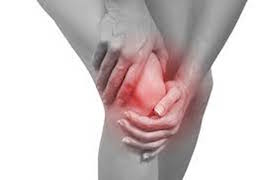
Knee pain is the most common musculoskeletal complaint that brings people to their doctor. With today’s increasingly active society, the number of knee problems is increasing. After all we take an average of 13,000 steps a day, exerting a tremendous force through our knees. If we take our knees for granted then this daily wear-and-tear will eventually leads to arthritis or a predisposition to an injury.
Most people over 30 have already have signs of osteoarthritis in their knees. Activities and habits that cause arthritis or weak connective tissue include under activity or over activity without adequate nutritional support for repair. Anti-inflammatory pain medications (these drugs inhibit collagen synthesis and stop the migration of fibroblasts sent to repair the injured tissue), steroids, mineral deficiency, trauma, poor shoes or unresolved muscle spasms can all contribute weakening of the knees causing pain.
Ligaments can be over-stretched by an injury so that they becomes lax. Lax ligaments and weak leg muscles cause the surfaces of the knee to track unevenly, causing trauma and wear-and tear arthritis to the cartilage. The knee becomes unstable, hurts, and swells Instability stresses the ligaments, which can eventually become frayed and torn. Once complete tearing occurs, surgery may end up being the only option.
Don’t wait until there is a ruptured ligament or tendon. Acupuncture can help resolve knee pain. It has the unique ability to increase circulation and stimulate the bodies intrinsic healing ability. It relaxes the muscles and strengthens the connective tissue. By bringing circulation to the lax ligaments and weakened tendons surrounding the joints the cause of the irritation and inflammation can begin to be resolved. The treatment will also help release endorphins to decrease the pain and prompt the body to begin the healing process.
The diagrams below illustrate how muscular reaction patterns can lead to different types of knee pain depending on the referral pattern of the affected musculature. Acupuncture points (trigger points) are marked “X” and are very effective points to treat the associated referral pain often associated with knee pain.
